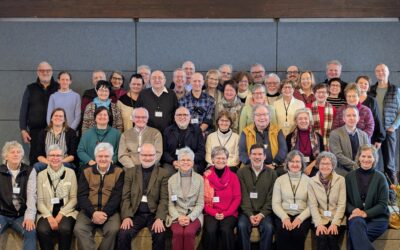Maria Voce is also among the signatories to the appeal promoted by the Community of Sant’Egidio to re-humanize our societies. An invitation to spread it and to sign it in order to draw attention to the serious condition of the elderly following the “massacres” carried out by the pandemic. No to selective health care, no to a “culture of abandonment”, no to any expropriation of individual rights; yes, instead, to equal treatment and the universal right to care. “The value of life remains the same for all. Whoever deprecates the fragile weakness of the elderly, prepares to devalue all lives”. The international appeal “Without the elderly, there is no future, to ‘re-humanize’ our societies – Against ‘selective health care'” supports a culture of life without exception and it was on June 15th , on the occasion of the World Elder Abuse Awareness Day , which Sant’Egidio celebrated in all the countries where it is present. Among the many high profile endorsements is that of the American economist Jeffrey Sachs, the Italian-British writer Simonetta Agnello Hornby, the German philosopher Jurgen Habermas, the Spanish sociologist Manuel Castells and then Stefania Giannini, UNESCO’s Deputy Director General, as well as the founder of the Community of Sant’Egidio, Andrea Riccardi, who is also the first signatory. The president of the Focolare Movement also joined in and signed, inviting the communities of the movement worldwide to do the same, to draw attention, especially in Europe, to the condition of the elderly. “I share what the appeal denounces, namely the emergence, in the face of the dramatic health conditions that Covid-19 has brought to light, of a dangerous model that promotes selective health care that would in fact justify choosing to care for the young, sacrificing the elderly. A society without the elderly cannot be said to be such; a society that cannot benefit from the indispensable intergenerational relationship is a poor, monotonous society, incapable of planning and achieving a better future for all, of being inclusive, because it is the result of the diversity that one encounters”. In a note circulated by the Community of Sant’Egidio we read: “The appeal stems from the bitter observation of the very high number of victims of Covid-19 among the elderly population, in particular among people in institutions and nursing homes, and it proposes a radical change of mentality that leads to new social and health initiatives”. A WHO report noted, as early as 2018, that precisely “in institutions abuse rates are much higher than in community settings” including various maltreatments including “physical restrictions, deprivation of dignity, imposition of daily chores, intentional provision of insufficient care, neglect and emotional abuse”. The situation worsened during the Covid-19 pandemic resulting, as is known, in a very high death rate in institutions, about twice as high as among the elderly living at home, according to data held by the Higher Institute of Health. For this reason, on the World Elder Abuse Awareness Day , the Focolare Movement joined the Community of Sant’Egidio in supporting the international appeal and the promotion of a “moral revolt to change direction in the care of the elderly”, proposing to the state and local administrations the implementation of a system that privileges home care and assistance for the elderly population.
Stefania Tanesini
Sign the appeal here




0 Comments